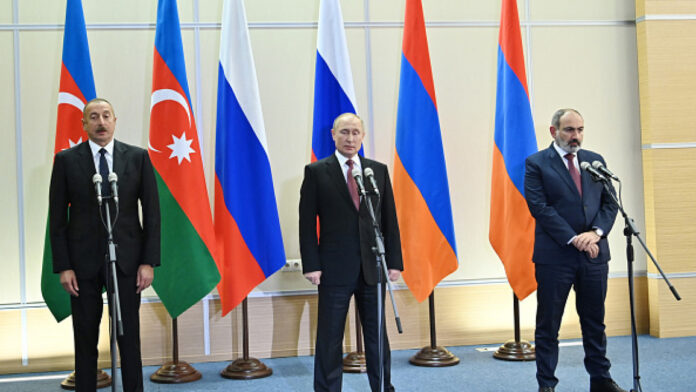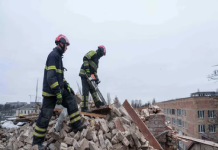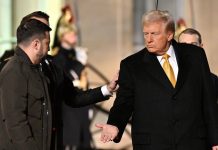MOSCOW(Reuters) – The leaders of Azerbaijan and Armenia both spoke of progress towards ending their decades-old conflict over the territory of Nagorno-Karabakh, even as they argued openly in front of Russian President Vladimir Putin.
At a meeting in Moscow, Armenian Prime Minister Nikol Pashinyan accused Azerbaijan of causing a humanitarian crisis by blocking the only land route from Armenia to Nagorno-Karabakh.
He called it a “direct violation” of a 2020 ceasefire that ended the six-week war between the two countries, and called for an international mission to be sent to evaluate the situation.
In mid-December, Azerbaijani activists began blocking a road known as the Lachin Corridor, which Pashinyan said was under the control of Russian peacekeepers, and Baku set up a checkpoint along the road last month.
Azerbaijan claims it took this step because Armenia used a route to send arms to Nagorno-Karabakh, a claim Armenia denies.
Azerbaijan President Ilham Aliyev responded to Pashinyan:
“Azerbaijan has not blocked passage, There is no need to use this platform for baseless claims.”
The two leaders continued their discussions in Russian for several minutes before Putin, who was making renewed efforts to negotiate an agreement, ended the talks. The meeting took place at the economic conference of the former Soviet republics in Moscow.
Despite heated exchanges, Pashinyan and Aliyev said they had recently made progress towards an agreement based on mutual recognition of each other’s territorial integrity.
As the United States and the European Union make their own efforts to bring the two together, Russia, distracted by the war in Ukraine, faces the challenge of maintaining its role.
Unresolved issues between the two countries include the rights and security of some 120,000 Armenians living in Nagorno-Karabakh, which is internationally recognized as part of Azerbaijan.
Putin said he was due to hold tripartite talks with Aliyev and Pashinyan later, during which he had the opportunity to “talk about everything calmly and factually”.
Russia has traditionally been the main mediator of power between the two southwestern extremities of the former Soviet Union, and has fought two major wars in the three decades since the collapse of the former Soviet Union.






